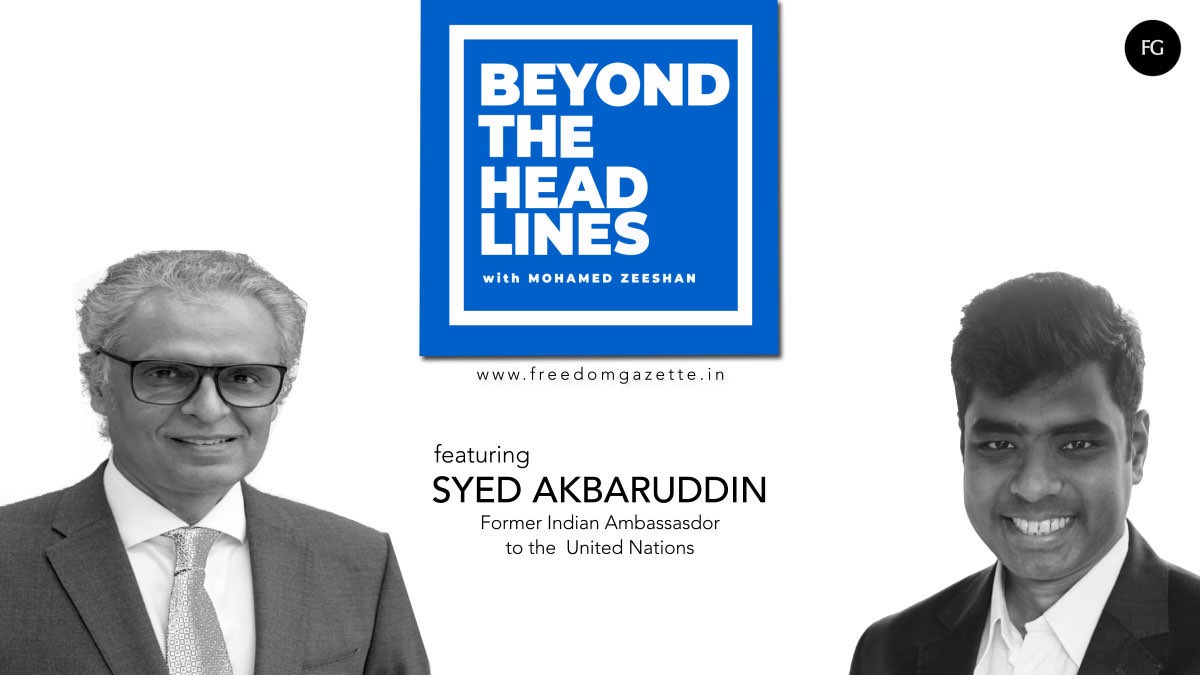In this episode of Beyond the Headlines, I spoke to Syed Akbaruddin, former Indian ambassador to the United Nations in New York, about the crisis in Afghanistan, the role of the United Nations in solving that conflict, India’s efforts to win a permanent seat in the UN Security Council, the case for reforming the Indian Foreign Service, and much more.
Speaking about the crisis in Afghanistan and the rise of the Taliban, Akbaruddin stressed the need for India to remain engaged in some form or the other, while also explaining why the UN often appears helpless. He also said that countries can no longer be mute spectators to crises abroad in the name of state sovereignty. “Today, we are in a much more interconnected age,” the former ambassador said.
On the politically sensitive issue of UN Security Council reform, Akbaruddin said that permanent members often support each other in preserving the status quo, regardless of their geopolitical scuffles in public. Citing India’s historic victory over the United Kingdom in the 2017 elections to the International Court of Justice as an example, Akbaruddin said that despite their differences, Russia had supported the UK during the vote: “Permanent members support each other [on UN reform], come what may.”
Separately, Akbaruddin also talked about his new role as dean of the new Kautilya School of Public Policy in Hyderabad, the role that public policy professionals can play in India outside of the civil service, and the challenges involved in expanding the Indian Foreign Service.
For more, listen to the conversation below, follow us on Spotify, and subscribe to our weekly newsletter for updates on these conversations.
Mohamed Zeeshan is a Founding Partner and the Editor-in-Chief of Freedom Gazette. He is the author of Flying Blind: India's Quest for Global Leadership (Penguin 2021). He is currently a foreign affairs columnist for The Diplomat, South China Morning Post and Haaretz, and writes 'The Z Factor' - a monthly Sunday column in the Deccan Herald. He has previously worked at the United Nations in New York and with the global consulting firm Kearney in Dubai. He is a graduate of International Affairs from Columbia University.


